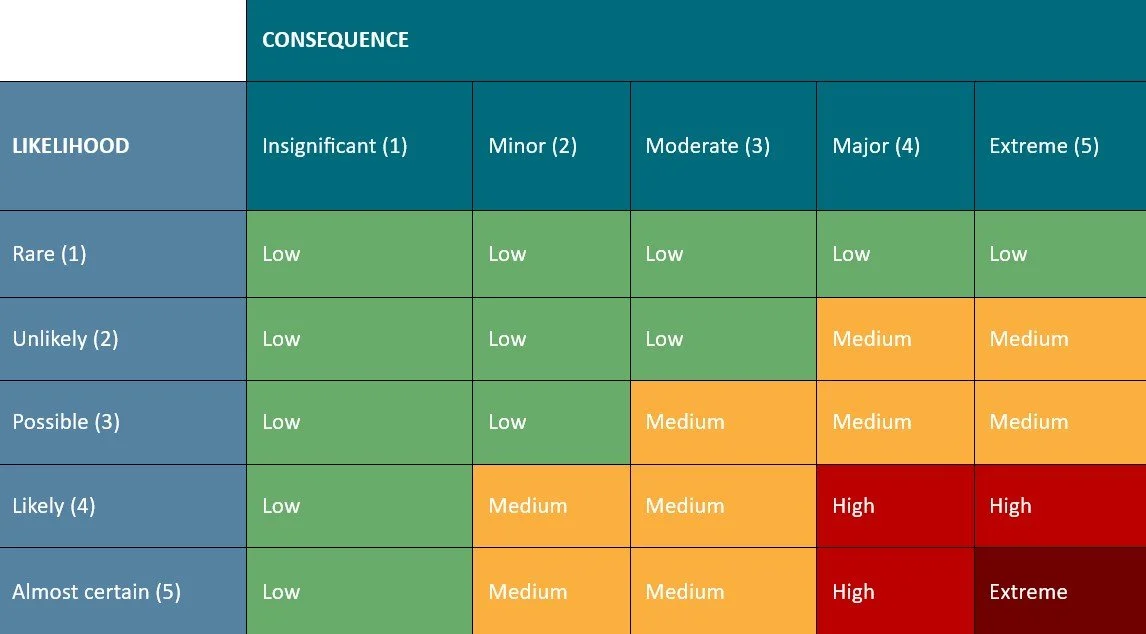Keep Up-To-Date with the VerifiMe® Knowledge Centre
Stay in the know about the latest in shareable digital identity and global trends. We will be adding articles and opinions regularly and welcome comments as well.
The Evolution of Digital Identity: From Silos to Shareable Credentials
Understanding how digital identity is evolving helps explain why shareable verified credentials represent such a fundamental shift in compliance and client onboarding — particularly for Australian reporting entities preparing for expanded AML/CTF obligations.
What Is Risk Assessment and Why Your Practice Needs It by July 2026
A foundational guide for accountants and lawyers preparing for Tranche 2 AML/CTF compliance
If you're an accountant or lawyer in Australia, July 1, 2026 marks a watershed moment for your practice. From that date, your profession becomes subject to comprehensive Anti-Money Laundering and Counter-Terrorism Financing (AML/CTF) obligations under what's known as Tranche 2 regulations.
Leading by Example: How Confidant Partners is Preparing for AML/CTF Tranche 2
Leading by Example: How Confidant Partners is Preparing for AML/CTF Tranche 2
When professional advisors help clients navigate regulatory change, their own compliance approach matters. Here's how Confidant Partners is implementing the same rigorous standards they recommend.
AML/CTF Tranche 2: Frequently Asked Questions for Accounting Practices
A comprehensive FAQ for accountants and anyone in the industry covering everything from the basics to addressing real concerns we hear from accountants all the time regards what the AML/CTF Tranche2 regulations mean.
AML/CTF Tranche 2: Customer Due Diligence and Mandatory Reporting for Law Firms
From 1 July 2026, Australian law firms must comply with AML/CTF Tranche 2 requirements. If your practice handles real estate transactions, manages client funds, or creates trusts and corporate structures, you'll become an AUSTRAC reporting entity.
That means implementing customer due diligence (CDD), conducting beneficial ownership verification, screening for politically exposed persons (PEPs) and sanctions, and submitting suspicious matter reports (SMRs) and threshold transaction reports (TTRs).
16,000 Australian law firms face this compliance challenge. Most are asking: How do we implement AML/CTF requirements without re-verifying clients repeatedly across every matter?
How Shareable Digital Identity Benefits the Tranche 2 Regulated Real Estate Market
Shareable Digital Identity for Real Estate Compliance
The blog outlines a proposed system for shareable digital identity to transform compliance procedures within the Australian real estate market, particularly for property bidders. This innovation centres on a "Verify Once, Share Many Times" model where a bidder's initial, comprehensive verification (including document checks, biometrics, and sanctions screening) generates a secure, reusable digital credential.
What Accountants Need to Know About Tranche 2 Reporting Obligations
AML/CTF Tranche 2: Customer Due Diligence for Accounting Practices - From 1 July 2026, Australian accounting practices providing "designated services" must comply with new anti-money laundering and counter-terrorism financing (AML/CTF) requirements under Tranche 2 reforms.
Strategic Alignment: National Identity Proofing Guidelines and AML-CTF Reforms
The 2025 National Identity Proofing Guidelines and the upcoming AML-CTF reforms demonstrate remarkable strategic alignment, creating a unified approach to identity verification and compliance that will reshape how Australian businesses manage customer due diligence.
Is the timing coincidental. The 2025 National Identity Proofing Guidelines take effect precisely as new AML-CTF customer due diligence requirements prepare for implementation on March 31, 2026. This strategic synchronisation provides regulated entities with clear, consistent standards for meeting both identity verification and compliance obligations under a single, coherent framework.
Adverse Media Screening: A Critical Component of Modern Customer Due Diligence
In today's rapidly evolving regulatory landscape, financial institutions and businesses face mounting pressure to implement robust compliance measures. Among these, adverse media screening has emerged as an indispensable tool for comprehensive customer due diligence (CDD) and anti-money laundering (AML) programs. But what exactly is adverse media screening, and why has it become so crucial for modern risk management?
Helping Xcend Create a Safer and More Trusted Framework for Users of Their Cuspy Platform
In today's rapidly evolving financial landscape, the potential for fraud—both opportunistic and sophisticated—is a rising issue. This is particularly so for securities registry platform operators.From today, Xcend is introducing a new feature to their registry management platform Cuspy. Having recognised that a key vulnerability lies within online services and platform access, they've partnered with VerifiMe to create a comprehensive solution.
Why VerifiMe is All-In on Passkeys: The End of the Password Era
When we first launched Passkey support in October 2023, we were pioneers in uncharted territory. The technology was cutting-edge, but the market wasn't quite ready. Users were unfamiliar with the concept, and adoption was slower than we hoped.
Fast forward to today, and the landscape has completely transformed. In this blog, we explain more about what they are, the benefits and what we are doing to support them in our system
A Guide to Politically Exposed Persons (PEPs) and Sanctions Checks for Tranche 2 Reporting Entities
PEP and sanctions checks are not just regulatory obligations—they are critical safeguards that protect organisations from reputational damage, financial penalties, and inadvertent involvement in illicit activities. Embracing automation in these processes transforms compliance from a reactive necessity into a proactive strategic advantage.
How Shareable Identity Solves the Tranche 2 KYC Bottleneck
As digital services expand and the amendment to the AML/CTF laws increases the number of reporting entities, we're all having to verify our identities over and over again. It's time consuming and frustrating.
But what if you could verify your identity once, and then securely share it with organisations that need to verify you or a business you control? That's the promise of shareable identity.
Biometric Identity Verification: Understanding the difference between Passive vs Active Liveness Checks
In today's digital landscape, biometric identity verification has become a cornerstone for ensuring secure and seamless interactions. A crucial component of biometric authentication is liveness checks. In this blog we explore the difference between active and passive liveness checks and why active liveness check are superior more mitigating risk.
Tranche 2 AML/CTF Reform: Recent Update for Small to Medium-Sized Accounting Firms
The AML/CTF Amendment Bill 2024 amending the AML/CTF Act passed Parliament on 29 November 2024. The new laws are designed to detect money laundering, terrorism financing and proliferation financing. AUSTRAC (https://www.austrac.gov.au/) will now regulate tranche 2 businesses which provide certain designated services and will include professional service providers such as accountants, lawyers, conveyancers, and trust and company service providers.
Digital ID Fear – Sorting Fact from Fiction
This article aims to identify the sentiments pushing forward with the need for digital ID and what the risks are that drive fear around its implementation.
Personhood: What Is It and How Do We Protect It?
The concept of personhood has evolved through the digitisation of our everyday lives. This has led to a pressing need for robust frameworks that safeguard individual identities.
What is a Digital ID Wallet?
A Digital ID Wallet is a secure way to store and manage identification credentials electronically, accessible via smartphones or digital devices. It reduces the need for physical documents by consolidating IDs like driver’s licences or passports in one place.
The AML/CTF Amendment Bill 2024: For Small To Medium-Sized Legal, Accounting Or Real Estate Business - What You Need To Know
The AML/CTF Amendment Bill 2024 is set to bring significant changes for small to medium-sized businesses, especially those in newly covered sectors like legal, accounting, real estate, and precious metals and stones dealing.
Implications of the AML/CTF Amendment Bill 2024
In September 2024, the Attorney-General introduced the Anti-Money Laundering and Counter-Terrorism Financing (AML/CTF) Amendment Bill 2024 into Parliament. This Bill represents a significant advancement in protecting the community from financially enabled crime.
Interested in learning more?
Complete the below fields and we will be in touch shortly!



















